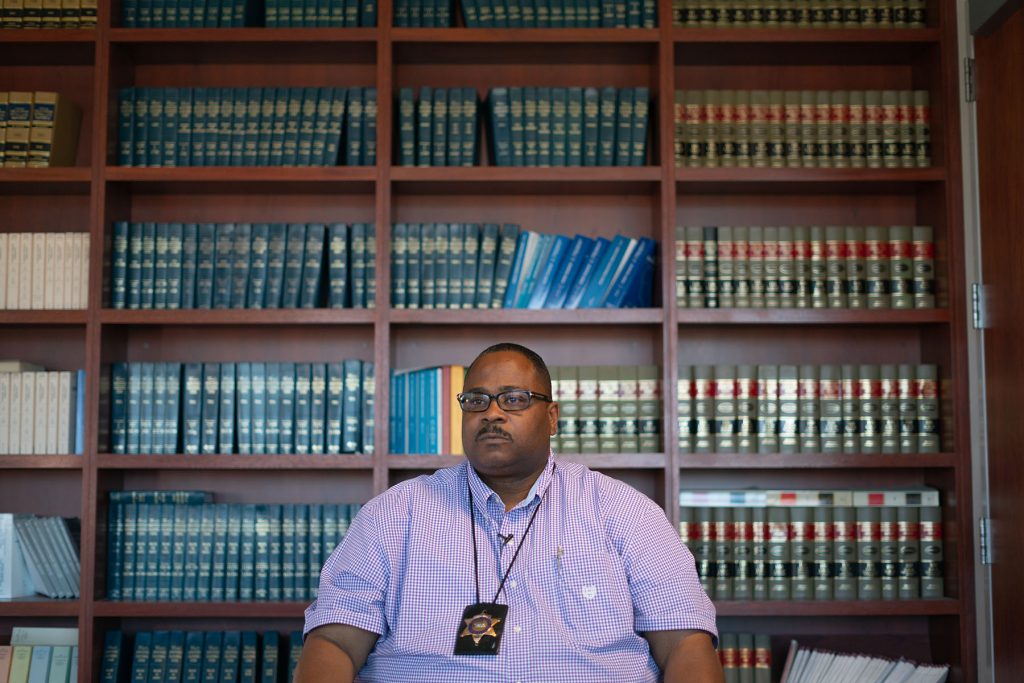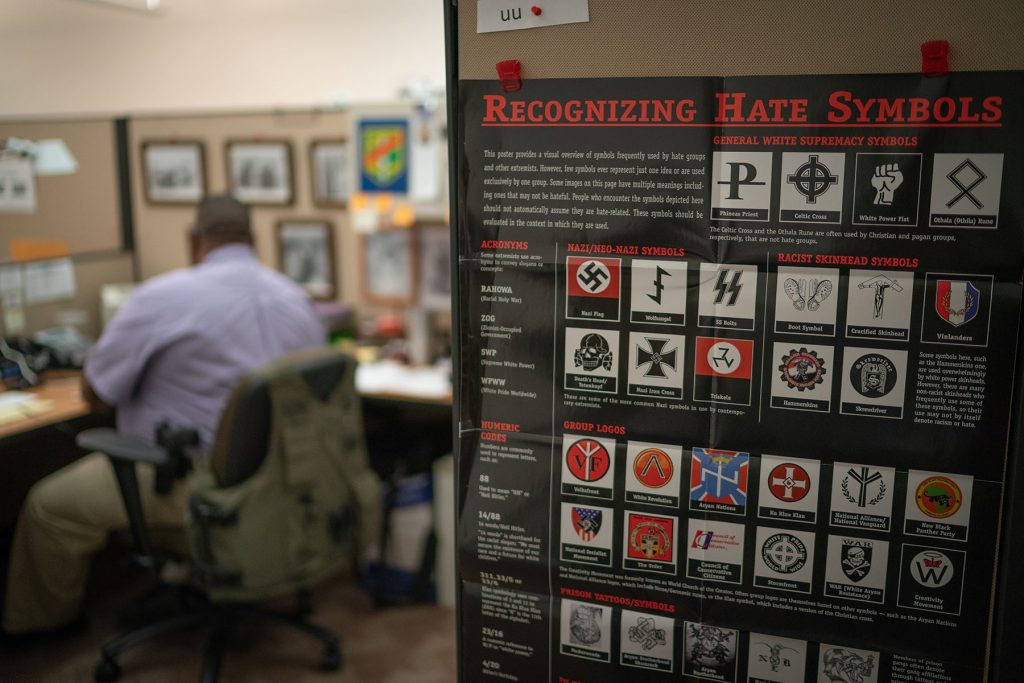LANCASTER, Calif. — Law enforcement agencies in California aren’t doing enough to reach out to vulnerable immigrants who may be unwilling to report hate crimes because they fear deportation, according to a report released in May by the California State Auditor.
The report also suggests that “law enforcement agencies hold public meetings about hate crimes and orientations with specific targeted communities, such as Muslims and immigrants.”
Although reported hate crimes have increased by more than 20 percent from 2014 to 2016 in California, law enforcement “has not been doing enough to identify, report, and respond to these crimes,” according to the report.
At least one California sheriff’s department says it is addressing the problem in a big way.
To bolster victim outreach, the Los Angeles County Sheriff’s Department is emphasizing to the immigrant communities that it isn’t concerned with their immigration status, and that officers will aid victims with validating their citizenship, said Detective Christopher Keeling, the hate crime coordinator for the sheriff’s department.
“The fact that you’re a victim and you’re assisting with the investigation … we will help you stay here,” Keeling said deputies tell immigrants who report hate crimes. “We will help you with your VISA because we want you here because you’re not the type of person that we think should be moving.”

State law prohibits law enforcement from detaining, reporting or turning over hate crime victims and witnesses to federal immigration authorities “as long as such individuals are not charged with or convicted of certain crimes under state law,” according to the Auditor’s report.
Keeling said there was a 19 percent drop in reported hate crimes in his 4,000 square mile jurisdiction from 2016 to 2017. There were 166 hate crimes reported in 2017 and 206 in 2016, according to an LASD document obtained by News21.
He traces the drop in the county’s hate crimes, in part, to underreporting.
Undocumented immigrants, more so than other victim groups, are increasingly deterred from working with law enforcement because they fear deportation, undermining the county’s hate crime data accuracy, Keeling said.
“We can’t protect what we don’t know,” Keeling said.
Keeling said one of his department’s goals is to prevent undocumented immigrants from becoming hate incident victims twice – once for the crime and twice for a system that fails to report and protect.
New pamphlets that explain what hate crimes are, the rights every victim has and why he or she shouldn’t be afraid to report, regardless of immigration status, have been designed, Keeling said. Once printed, all LASD sheriff’s stations will have them and deputies will hand them out in the community, he added.
“Immigration status is NOT a determining factor for assistance,” states an excerpt in the pamphlet obtained by News21.
The pamphlet contains California’s hate crime statute and explains the difference between hate crimes and hate incidents. It also emphasizes that both types of situations must be reported to law enforcement.
“Hate crimes and hate incidents MUST be reported in order to ensure proper documentation, investigation and prosecution,” an excerpt of the pamphlet states. “Not reporting these incidents to law enforcement only encourages perpetrators to continue to act on their beliefs and they will continue to pose a threat to our communities.”
But Keeling said the pamphlets alone won’t properly bolster hate crime reporting in undocumented communities stricken with fear; it takes one-on-one attention, constant outreach, and eventually a level of trust that produces more accurate numbers.
“They have to first see us an equal, as a friend, as a partner,” he said. “And that takes time. I get it.”
But advocates say more needs to be done to improve relations between officers and immigrants who are victims of hate crimes.
“We have women that come to our office that are literally are afraid – even with asylum – that (citizenship) can be taken away from them,” said Maria Roman, a transgender woman who is a board member of the TransLatin@ Coalition, a nonprofit which does advocacy work for trans Latina immigrants.
“I think that there’s a lot of work to be done,” she said.

